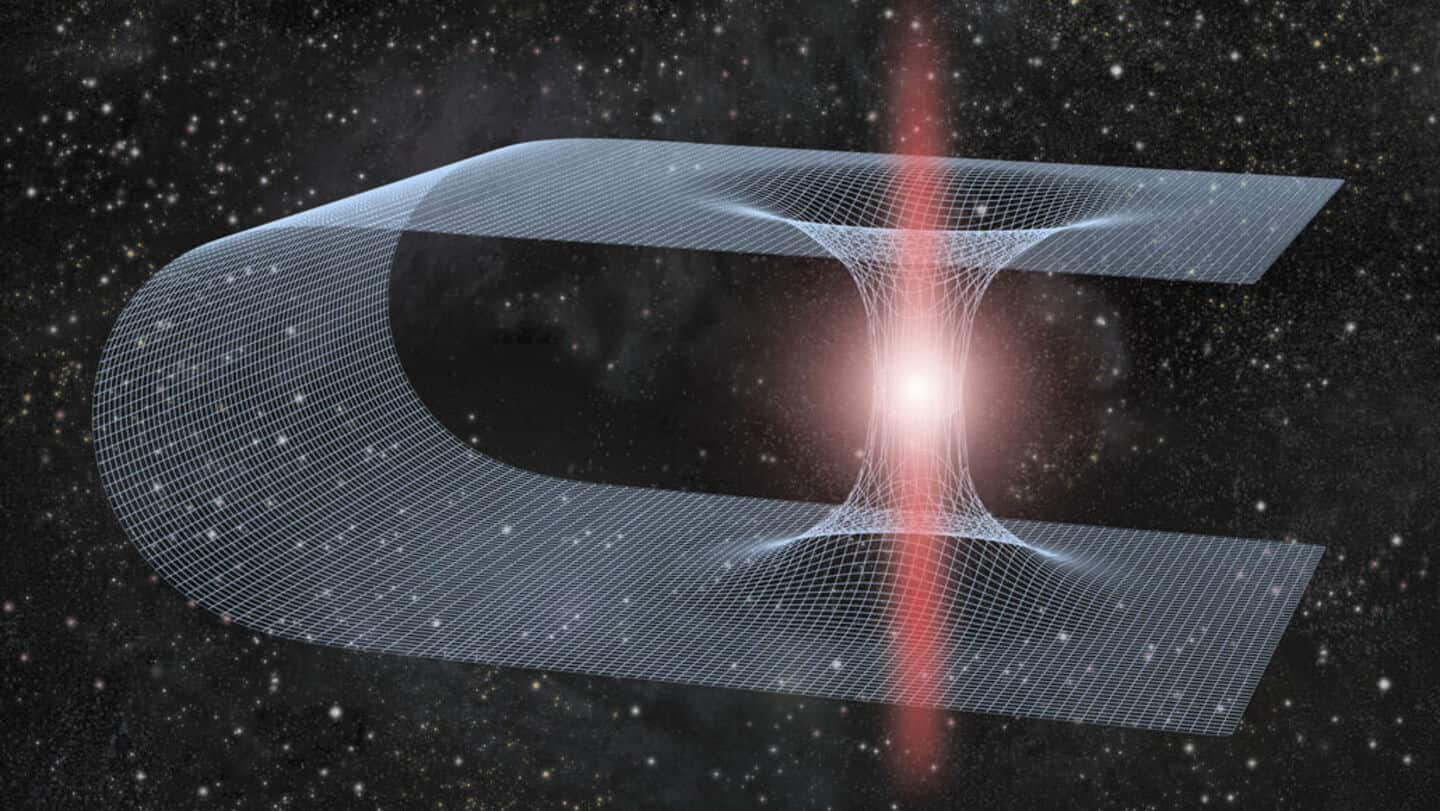
Did we get a signal from an alternate universe?
What's the story
A gravitational wave event detected in 2019 might suggest the presence of a wormhole. The signal, named GW190521, was picked up by LIGO and Virgo observatories. It lasted less than a 10th of a second and was originally thought to be caused by the merger of two black holes. However, new research suggests it could possibly have originated from an alternate universe and arrived here through a collapsed wormhole.
Theoretical constructs
What are wormholes?
Wormholes, also known as Einstein-Rosen bridges, are hypothetical structures connecting two points in space-time. They were first proposed by Albert Einstein and Nathan Rosen in 1935. If the 2019 event was indeed related to a wormhole created from the merger of two black holes, it could suggest evidence for the existence of these theoretical constructs.
Evidence analysis
What the new study found
The researchers behind the new study, led by physicist Qi Lai from the University of Chinese Academy of Sciences, analyzed the gravitational wave event. They found that when massive objects like black holes and neutron stars collide, they generate ripples in space-time called gravitational waves. However, the expected waveform from a standard binary black hole merger was not observed in this case. This led them to consider the possibility that what we observed might have been a signal from an alternate universe transmitted through a wormhole.
Alternative theory
A collapsed wormhole
The researchers also suggested that a binary black hole merger could have resulted in a collapsed wormhole, forming a single black hole. This would explain the short burst of gravitational waves detected in 2019. They compared this waveform model with data collected back then and found it was only slightly less accurate than the standard binary black hole merger waveform.